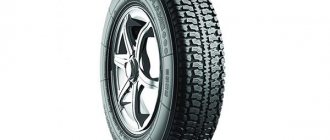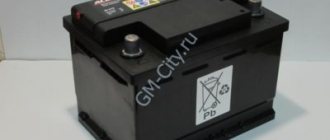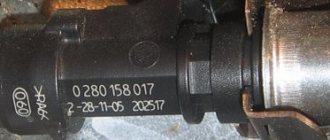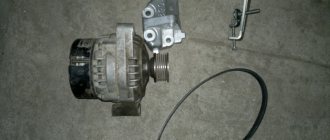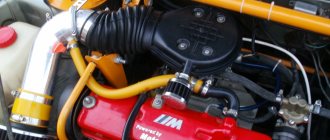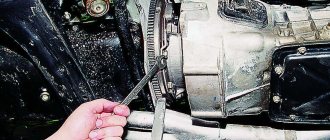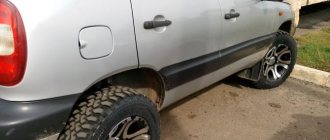| № | Name | Rating | Nomination |
| 1 | HEPU P620 | 4.95 | The most durable |
| 2 | LUZAR LWP0123 | 4.90 | The most popular and accessible |
| 3 | INA 538 0030 10 | 4.85 | The most effective |
| 4 | TZA 2123 POWER CLASSIC | 4.80 | The best pump among domestic ones |
| 5 | Marel MAGNUM MWP005 | 4.75 | The best balance of price and quality |
To replace the pump on a Chevrolet Niva, you do not need to have high qualifications, a pit or an overpass. Some people do it themselves, others trust a car service. But in any case, practical car owners choose and buy the part that needs to be supplied on their own.
Problem
Two issues are on the agenda.
This is the quality of the product and the re-upholstery of drive belts by the people and Papuans. AvtoVAZ's court supplier is the TZA plant (Togliatti Automotive Components Plant), which makes truly high-quality domestic products. But the number of fakes is simply off the charts. The Chinese have long since bypassed packaging, holograms and SMS codes on the box. Now the most important protection against counterfeit products is a reliable supplier who works directly with the factory. With the issue of re-tensioning the belts, the picture is sad. In 70% of destroyed pumps: either the belt was too tight or was of poor quality.
Pump for the field, manufacturer TZA
This spare part is produced by a fairly large number of manufacturers. Hepu, SKF - Germany, NK - Holland, Airtex, Dolz - Spain, Graf, Metelli - Italy, TZA - Russia. There are also several “packers” whose boxes contain other people’s pumps, but we don’t take them into our inventory. The selection of competitors is quite simple; the pump must have a large impeller.
Whether it's plastic or metal doesn't really matter. Today, the preferences are as follows: two pumps from the TZA plant and a Metelli pump (supplier of the Fiat conveyor). For a long time, Hepu water pumps had a very good reputation, but apparently cheaper production and globalization had an effect. The service life of products has dropped greatly and for a long time the company name has not been found on body castings.
This means that this is all done “outside”. SKF has very good quality, but in terms of price-quality ratio, the pump is very much behind the favorites. The Spanish Dolz are good quality, but unfortunately the pump has a small impeller. However, it can be installed on lightly loaded and not forced engines; no overheating was noticed.
Spare parts from this manufacturer are of very good quality. The only problem is with the heads of the plant “managers” who sell products and set prices. Within a few months, the plant's selling price for pumps increased by 30%. And as soon as the price exceeded foreign competitors, the demand for these products fell again.
TZA pump, conveyor
- TZA pump, reinforced. In fact, this is a regular conveyor pump for Shnivy. It actually has a roller bearing, while the classic one had a ball bearing. But this is Russia and therefore with the word reinforced, it sells much better. The pump has a large plastic impeller installed. In my memory, I don’t remember it being torn off the shaft or exposed to antifreeze.
TZA pump, Powerfull impeller
- Pump TZA, Powerfull or increased performance. This pump comes with a new type of impeller. On the box and the factory’s website it is written that this pump is 10% more productive than a regular one. The internals and body of the product are similar to the standard version, the only difference is the impeller. There is only one downside to this pump at the moment - pricing.
The pump on the Shniva is a key element of the cooling system, on which the performance of the engine depends.
Repair of this unit is not provided by the manufacturer. Therefore, if any malfunctions are detected, the unit must be replaced.
This operation does not require high qualifications or special devices. To check the functionality and replace the pump on your own, you don’t even need a pit or overpass.
It is also possible that the pump may jam, accompanied by a broken timing belt and “meeting” of the valves with the pistons. Then the cost of a tow truck will be added to the expensive repairs.
Therefore, it is better to buy a water pump only from a trusted manufacturer -
. Suitable from domestic products
To avoid buying a fake, use the services of a trusted seller or online store. Consultants will tell you which pump is suitable for your car and help you choose a high-quality spare part that matches your repair budget.
The “originality” of the Pekar pump can be checked through the manufacturer’s official website
But few motorists today know which pump is recommended to be installed on the Niva. Some hobbyists conduct independent tests of these nodes, and some seek help on the Internet or from friends who have also encountered this problem.
Most car enthusiasts prefer spare parts from abroad. Below is a list of the most popular manufacturers:
- Airtex (Spain).
- SKF (Germany-Spain).
- Hepu (Germany).
Pump manufacturer Hepu
All these companies are engaged in the production of pumps for cooling systems. Such spare parts are distinguished by their performance, since they all have large impellers made of cast iron, which guarantees good pumping of liquid in the system and the durability of the pump, since its main parts are made not of metal, but of cast iron, and therefore they are less susceptible to corrosion.
Pumps with metal impeller manufactured by Hepu and Tai
Pumps from the company Graf are especially popular. They differ from the others in their large impeller, its correct offset, and long service life. If the unit is installed correctly, it can last 4-5 years with proper use. Such a resource for pumps is considered normal.
Experts also note that in 2016, the pump from , which can also be installed on a Chevrolet Niva, performed well. Its special feature is reinforced bearings. The disadvantage is that the site has a lot of fakes. At first glance, such a part is difficult to distinguish from the original, since the Chinese have learned to bypass all methods of protecting the original product. One of the differences between the original is that the kit comes with a cork gasket, while the fake one is made of paper.
Also interesting: Clutch on a Chevrolet Niva - Auto magazine MyDucato
Choosing a cheap pump
The fact that the pump has failed can be determined by the characteristic sound that appears when the engine starts. When replacing the pump on your own, you should remember that a similar unit from a “penny” will fit on a Chevrolet Niva, but it will no longer fit on a regular Niva. It should also be noted that the pump from the VAZ-2101 is cheaper than the original one from Chevrolet.
TOP 7 best pumps for VAZ (Lada)
Models from domestic manufacturers are extremely popular among Russian users due to their moderate cost and cheap maintenance. The problem with the machines is their minimal reliability - frequent breakdowns of internal components provoke unscheduled repairs and inspections. In this case, the engine compartment suffers most often. The following is the answer to the question, what is the best pump for a VAZ and how to prevent its early wear.
About replacing the Niva Chevrolet pump
Something started making noise, or rather, it started making noise about a month ago. But the sound appeared and disappeared, but here there was a constant noise. I was a little upset until the thought “Pump” dawned on me. It’s business))) Removing the belt showed that yes, it’s darling. So for those who have not encountered the replacement, a short report. It's not complicated at all.
Unscrew the tensioner and remove the belt from the pump.
We unscrew the protection and boot and climb up to the pump. Unscrew the clamp.
We insert a small screwdriver or nail under the pipe. Carefully pour the liquid into anything you can get your hands on.
Unscrew the 3 bolts securing the pump housing to the engine and remove the pump.
When removed, another 100 grams of liquid may leak out.
Then disassembly, replacement of the worn part and reassembly in reverse order.
I found a cool pump.
The width of the main blades is the same, but the working surface of the new one is different (blue and red arrows) plus additional blades.
The cooling system comes to life the second the engine starts and constantly monitors its temperature and well-being. The main component of the cooling system is the pump, or, to use the official terminology, “a water pump designed to circulate coolant in the car engine cooling system.”
For any SUV, the engine cooling system is very important, especially if it has to go off-road. In this case, its engine will operate in extreme mode, since there is no natural air flow to the radiator and motor, and the fan itself cannot cope with such a task.
The factory Niva Chevrolet pump has a short service life
Today, many Niva Chevrolet owners notice a situation where factory pumps begin to leak and fail after a short period of time. This usually happens after a short distance (on average 10,000 km).
In this case, even minor repair work does not help to cope with the situation, and it usually ends with the pump having to be completely replaced.
Choosing a cheap pump
Chevrolet Niva 2007, engine Gasoline 1.7 liter., 80 hp, AWD drive, Manual - DIY
Comments 24
I will never give a heap, but the information is interesting)
I wanted to buy the new pump, but they talked me out of it. We sold a regular factory TZA, with all protection checks. So I’m thinking, when I change it, will I just change it or take it off and remove the housing to check the proper gap between the housing and the impeller? A friend had experience with plastic impellers and it shattered, but at the same time it was not a TZA or a fake, on a TZA the impeller is filled in such a way that the metal sleeve is not round, but of such a shape that it is impossible to turn it without breaking the impeller body. A metal impeller is no better; metal does not like cavitation and is much heavier than plastic. I don’t know, but we don’t praise HEPU pumps. Although I installed the hepa on the Renault. And there it works perfectly.
I already have a second dick, I don’t want to change it for anything, there were two cases where the plastic impeller turned, but here it’s metal and it’s stuck on the hot button...
Yes, I would also install the hepa again, but it is not on sale. You have to order it and wait. And I needed it urgently. So I’ll test it) Then I’ll cut it up when it starts to malfunction...
As soon as I started reading, I jumped for joy, this is a happy occasion and I will finally buy an old Hepa. But reading further is a complete disappointment... But in kind I would have paid for the fact that you sawed 500 rubles and also sent the transport at my expense. Eh...
I don’t regret cutting it at all! Now at least we’ll know what’s inside) I can send you the old stock pump) It’s already been in the garage for 5 years
I need exactly the kind of Hepa that was cut and not any other, without options. I once saw the required impeller on another pump, but I don’t know its brand.
In general, hepu are excellent pumps, I haven’t installed them on a Niva, but they are the only ones I have on a Volvo, and I only use hepu antifreeze. I changed the pump and installed it, and so far it seems to be running, but... I think the worst thing that probably affects the service life is the moronic belt tension system. Why didn’t they do it like on normal machines, the tension is from a spring-loaded roller. Tension is ensured, there is no need to warm the head due to excessive overtension, all components last as long as possible.
And this is taking into account that for the last year I drove with a slightly loose belt, occasionally whistling...
I’m also afraid to overtighten and “whistle”, it was a sad experience
With TZA you can also run into a fake, it costs even less than this, and 70 thousand is a good mileage for any pump. And it’s good that hepa has balls from bearings and not textolite bushings))). Nothing lasts forever!
Our Nivovsky store does not sell counterfeits! They order only the best and original. These are all sorts of Autoworlds - yes... you can buy bullshit there like Phenox...
I still have an old factory pump lying around in the garage for 5 years, which went through 90 thousand and there was no play. But I replaced it with hepa for prevention. We can still cut it open and see what it’s like inside... I’ll think about it...
Generally a normal entry! He was very responsible. I took everything apart and showed it. Well done!
Source
Why do you need a pump in a car?
The water pump of the internal combustion engine circulates antifreeze in the cooling circuit. Thanks to it, the heated liquid from the cylinder block enters the radiator, where it releases heat to the environment.
The Chevrolet Niva pump has a simple centrifugal design: the flow of antifreeze is directed by a rotating impeller, which is driven by a timing belt.
In the event of a malfunction, the liquid stops circulating and the thermal regime of the motor is disrupted. This leads to boiling of antifreeze and, if the engine is not turned off, to breakage of the low-melting bearing liners. In this case, major repairs or replacement of the unit will be required.
Signs of breakdown
Most often, the seal or bearing of the unit breaks. As a result, the pump begins to leak, which can lead to loss of antifreeze or engine seizure. The impeller may also break or break. You can understand that the pump needs replacement by the following signs:
- the characteristic smell of antifreeze vapor in the cabin;
- extraneous noise when the engine is running;
- the appearance of antifreeze drops under the car;
- engine overheating;
- drop in coolant level in the expansion tank.
How to change it yourself?
If you decide to do the work yourself, you will need a new pump for the Niva and a standard set of tools.
Chevrolet Niva is easy to maintain, so replacing the pump yourself will not take much time. You will need:
- new pump with gasket;
- antifreeze for topping up;
- a screwdriver for removing clamps from the cooling system pipes;
- knife for cleaning the pump housing;
- socket or socket wrenches 13 or 17;
- container for draining antifreeze.
It is necessary to place the car on a level surface, turn off the engine and apply the handbrake.
Work progress
Before you begin replacing the water pump on a Niva with air conditioning, you need to drain the excess coolant. If it has already leaked out (which usually happens when the pump breaks down), you can start working right away.
1. Remove the air filter bell;
2. Remove the pipes going to the thermostat and pump;
3. Unscrew the 3 nuts securing the cooling fan;
4. Loosen the 3 bolts securing the pump impeller using a 13mm flat wrench
5. Loosen the generator belt, you need to loosen 3 bolts
6. Loosen the tension with a socket wrench and remove the belt;
7. Unscrew the nuts securing the pulley using a size 13 wrench and pull it out;
8. Unscrew 3 nuts and 1 stud holding the Chevy Niva pump;
9. Remove the water pump, it will be more convenient to do this through the bottom by unscrewing the 2 bolts securing the protection;
Also interesting: Choosing oil for the Chevrolet Niva gearbox, transfer case and axles
10. Remove the remaining sealant and old gasket with a knife;
11. Apply a thin layer of sealant to the block and the new pump;
12. Install a new gasket;
13. Insert the water pump into its seat; 14. Tighten the stud and fastening nuts; 15. Install the pulley; 16. Tension the generator drive belt; 17. Apply sealant to the thermostat and pump outlet; 18. Put on the pipes and tighten the clamps; 19. Secure the air duct corrugation; 20. Add antifreeze.
Troubleshooting
The main reason for water pump failure is severe wear of the bearings. Oil seal leakage is also a consequence of worn bearings. Cases when the oil seal began to leak coolant on its own are very rare.
The symptoms of these malfunctions are as follows.
- A suspicious noise is heard in the belt drive area, the intensity of which depends on the degree of wear of the bearings. In the early stages it manifests itself in the form of a hum, and then turns into knocking and grinding. The generator shaft can also make similar sounds - therefore, in this case, additional checking is required.
- There is play on the water pump shaft. You can determine it by shaking the shaft with your hand.
- The belt and the area around the pulley are splashed with antifreeze. This also needs to be further checked - a similar effect is observed when the crankshaft front main oil seal loses its tightness. In the latter case, the front of the engine becomes covered with a layer of oil and dirt.
- With a high degree of wear, the pump shaft moves to the side along with the pulley. As a result, the impeller breaks the housing, the shaft jams and breaks into two parts, and the generator belt jumps off.
If pump problems are not detected in time and the consequences described in paragraph 4 occur, the engine instantly overheats and the coolant quickly leaves the system. In such a case, immediately turn off the engine.
Diagnosing a faulty water pump is quite simple. It is necessary to open the hood and inspect the space around the pulley. If traces of liquid are found, you need to make sure that it is antifreeze and not oil. Then, in order to detect play, you should rock the pump pulley by hand. It should be taken into account that play can occur without coolant leakage through the oil seal. With a small (1–2 mm) play you can drive from 1 to 3 thousand km. After this, repair or replacement of the pump is necessary.
Video: fault diagnosis and pump repair
Design
Classic centrifugal pump of console type. The working shaft, mounted on bearings in an aluminum alloy housing, has a flange on one side for attaching the drive pulley. On the other side, an impeller with curved blades is rigidly fixed to the shaft. Single-row ball bearings, non-standardized, the inner race is the shaft itself, in which the ball raceways are made.
The outer race of the bearings is common, pressed into the housing with an interference fit and is additionally secured with a screw. On the outside, the bearing is protected by a conventional cuff; on the impeller side, an oil seal of a complex design is installed, in a steel cage, with two protective rings. The bearings are lubricated at the factory; replenishment of lubricant is not provided for by the design.
The impeller, depending on the manufacturer, can be made of cast iron, steel or plastic.
The pump pulley receives rotation from the crankshaft through a poly-V belt, which simultaneously drives the generator and power steering. The belt tension is adjusted by a movable roller.
The Chevrolet Niva pump traces its origins back to the water pump of the legendary “penny”, VAZ-2101.
The durability of a critical component, according to the laws of logic, should be close to the service life of the engine itself, but something went wrong in the domestic auto industry. If a “penny” car required engine overhaul no earlier than 130...150 thousand kilometers, and the owner did not even know where the pump was installed, then today’s components do not last that long.
In the vastness and wilds of the Internet you can find a variety of data on the service life of the Chevrolet Niva water pump, from 10 to 80 thousand mileage, but most sources agree: every 60 thousand mileage we change the alternator belt, which means we change the tension roller, and At the same time, we replace the pump if it has not “quacked” before.
The most common reason is failure of the oil seal on the impeller side. Hot, more than a hundred degrees, antifreeze flows into the bearings, washes out the lubricant from them and flows out through the outer cuff. Further events develop like an avalanche - destruction of bearings, shaft misalignment, antifreeze pouring out of the pump body. If the pump shaft gets stuck in the loose balls, the drive belt may break.
It is very rare, but destruction of the plastic impeller and pump impeller occurs. As a rule, this is caused by the use of low-quality coolant. The main component of both antifreeze and antifreeze is ethylene glycol mixed with distilled water and various inhibitor additives. At low temperatures, if the recipe is broken, the coolant turns into a thick mess of ice crystals.
Failure of the impeller oil seal causes coolant to leak from the drive pulley. It is quite difficult to determine a leak visually or by touch; the pulley and the pump itself are well “hidden” under the hood.
It is recommended that, after leaving the parking lot, you inspect the place where the car was parked. Traces of coolant on asphalt or snow can alert the owner to a possible defect. Also, a coolant leak can be prevented by a decrease in its level in the expansion tank.
Working shaft bearings operating without lubrication emit a characteristic noise when the engine is running, which increases as they wear out. Before the “finish”, the squeal of the impeller rubbing against the housing may also be added.
In a working water pump, there is practically no play of the working shaft in the bearings. If, after shaking the pulley with the belt by hand, you find even a slight gap, repairs are urgently needed.
If the impeller is destroyed, the coolant circulation stops, the engine quickly overheats, and the red warning light comes on. Antifreeze in the “water jacket” can boil and tear off the pipes, or squeeze out the head gasket.
Thermostat failure causing similar symptoms is extremely rare. If the thermostat breaks, it is usually in the open position; this is provided for by its design.
In any case, the engine should be turned off immediately and a tow should be sought to move to the repair site.
Repair or replacement?
It is theoretically possible to repair the pump. To do this, it is enough to have a new working shaft assembled with bearings, oil seal, impeller and cuff. Once upon a time, in the days of the Zhiguli, such a repair kit could be “obtained”.
Add a new housing to the listed parts - and you will get a “water pump assembly”, which today can be purchased without any problems in specialized stores.
About choice
AvtoVAZ catalog number: 2123-1307011-75.
It is equipped with a water pump produced by Tolyatti Automotive Units Plant CJSC (TZA).
On the shelves you can also find products from domestic SOATE, Fenox, Pekar. Of the imported ones, they are famous for the quality of products from Hepu (Germany), Graf (Italy), SKF (Germany - Spain).
The cost of a domestic unit starts from 880-900 rubles, imported ones can be found for 1900.
Counterfeit products from various shady manufacturers are very common on the market; outwardly they are practically no different from the original.
- A high-quality pump is packaged in a plastic bag and a bright cardboard box. The packaging must include the catalog number, specifications, Russian and ISO certificate numbers.
- The product kit includes a gasket made of a special material similar to cardboard. A paronite gasket is a sign of a fake!
- It is advisable to choose a pump with a cast iron or steel impeller.
Also interesting: Lift kit for Niva: which one to buy and how to install it yourself
Work can be performed on any level surface.
From the tool you will need:
- Open-end spanners “13” and “10”. (Better, of course, are sockets with a 50 mm extension and a ratchet, but not everyone has them.)
- Open-end wrenches “7”, for worm-drive clamps.
- Screwdrivers: flat and Phillips.
- Pliers (pliers).
- Actually a new pump with a gasket.
- Antifreeze or antifreeze, depending on what is poured into the cooling system.
- Hose, internal diameter 10 mm, length approx. 0.7 m and a plastic basin.
- Automotive sealant, any.
- A funnel and a piece of nylon stocking.
Unscrew and remove the pulley
We start working after the engine has cooled down.
Attention! The equipment in the engine compartment of the Chevrolet Niva, like any modern car, is arranged quite tightly. Therefore, we work carefully, with minimal damage to ourselves and surrounding components and parts.
- Open the hood and disconnect the negative wire from the battery. Remove the plastic engine cover.
- We remove the corrugated air duct along with the crankcase ventilation hose by loosening the clamps on the throttle valve and air filter and disconnecting the mass air flow sensor wire block.
- To relieve pressure in the cooling system, unscrew it - but do not remove it! – expansion tank plug. We disconnect (for more convenient access) the high-voltage wires by removing the caps from the spark plugs of the 3rd and 4th cylinders. Having placed a basin under the car, we direct the hose from under the hood into it. We turn out the bolt-plug with a “13” head and, pressing the hose to the hole, drain the antifreeze. After filling the basin, screw the plug back in and put the hose and basin aside. We put caps of high-voltage wires on the spark plugs.
The thread for the plug bolt is tapered, so no spacers are required.
If, when the pump broke down, the coolant leaked out and continued to leak out while you were going to the store and preparing for repairs, you don’t need to carry out the operation of draining the coolant. The liter or one and a half remaining above the level of the pump flange will not do much harm; the car is already standing in a puddle. Further:
- Loosen the clamps, disconnect all the hoses from the thermostat pipes, and remove the thermostat. We move the hoses to the side or tie them so that they do not interfere. Disconnect the wiring harness from the electric fan.
- We turn it off with a 13mm spanner - but not all the way! – 3 pulley mounting bolts, pressing the belt with the other hand to prevent the pulley from turning. Loosen the bolts securing the tensioner bar, loosen the belt by unscrewing the tension bolt. At the same time, we count the number of revolutions by which the bolt was turned and write down the number.
- We finally unscrew the bolts by hand and remove the pulley from the pump shaft flange. We do not remove the belt from the remaining pulleys!
- Access to the pump is open. You can finally verify the presence of a coolant leak and unacceptable clearances in the shaft bearings.
- We unscrew the fan mounting nuts (a “13” wrench, the favorite wrench of the Zhigulist and Ladovod!) and push it inside the casing. These 7...10 millimeters may not be enough now!
- Unscrew the nuts from the pump mounting studs. Remove the spring washers. After screwing the nut and locknut onto the lower left stud, we turn out the stud (we will move the pump out to the left and down).
Attention! If your car is equipped with air conditioning, its bracket is attached to the side stud of the pump housing. There is no need to remove the air conditioner assembly; just unscrew the stud using the “nut-locknut” method. When assembling, replace the stud with an M8 bolt of suitable length.
- Having separated the pump from the body, we move it along the three remaining studs to the radiator and remove it, lowering it to the left and down, turning it and bringing it up, between the pipes, hoses and wires. If you have an air conditioner, you can only remove the pump downwards by pushing it between the splash guard and the protection.
Thoroughly clean - with a screwdriver and knife - the mating surface of the housing on the engine block from the old gasket. Wipe all accessible surfaces under the hood from dirt, oil and coolant drips. Dry your hands. Using dry, clean hands, apply a thin layer of sealant to the pump flange, install the gasket on it, align and press it tightly. Apply another layer of sealant to the surface of the gasket - thin but uniform. Dry your hands again and start editing:
- Install the pump onto three studs using the familiar, complicated method. Try not to stain the sealant or move the gasket. Screw in the fourth stud to the full depth of the thread. Place the screws (spring washers), screw on the nuts and tighten them evenly, crosswise.
- Replace the electric fan and tighten its mounting bolts.
- Install the pulley onto the pump shaft flange, screw in and tighten its bolts, holding the pulley with your hand. Place the drive belt on the pulley and tighten it by turning the tension bolt to the number of revolutions you recorded. Tighten the bolts securing the tension roller bar. Hold the pump pulley with a belt and finally tighten its mounting bolts. Connect the fan's wire block to the fan.
Read news about the new Niva
- UAZ or Niva - which is better, car characteristics and features ::
- Tire size for the field, all-season tires for the field 4×4, mud tires, the best winter tires for r16 wheels
- Tires for Niva Chevrolet. Which one to choose?
- TOP 10 best brake pads for VAZ and Lada (Front, rear)
- The best ball joints for a car
- Which battery is better for Niva
- Shock absorbers for Chevy Niva rating
- Tire size for the field, all-season tires for the field 4×4, mud tires, the best winter tires for r16 wheels
Myths about pumps and minor modifications to the cooling system
The everyday life of the pelvis continues, almost every week the car presents a surprise, albeit a minor one, but a breakdown, which motivates me to make modifications and improvements, I hope soon this will not be so often.
1)
For unknown reasons, my pump pulley shattered:
To prevent this from happening again, I decided to change the pump, so I began to study, read and ask the owners a lot. Two popular answers are the TZA pump from the Chevy Niva, supposedly it has a larger diameter impeller, and the HEPU pump, supposedly very reliable. Therefore, let's put everything in order.
2)
Let's take four contestants
— Pump TZA 2123 (Chevy Niva)
It has a plastic impeller, the size of the impeller is actually larger than 2101, but exactly the same as 21213. It differs from 21213 only in a better oil seal and bearing. Price 730 rub.
— Pump TZA 2107 (Marking 2107, expected for NIVA and later sevens)
It also has a plastic impeller, exactly the same in size as 2123, cheaper, sellers explain this with a different filling (oil seal, bearing). Price: 580 rub.
— Pump Luzar 2101 (Marking 2101, suitable for all classic engines)
We have a cast iron impeller and the same size as on the pump for 2123, positive reviews including I am happy with it. But if you have a Niva 21213 or a classic with a mechanical fan drive, this pump is not suitable for you. Due to its design, it is impossible to install a bracket for installing a fan casing on it:
So it’s not suitable for us, even despite the most attractive price for such a device: 670 rubles
— Pump HEPU 2101 (Marking 2101, as well as Luzar, recommend it to everyone)
We have a cast-iron impeller of the same large size as all the competitors, there are no protruding parts like on the Luzar and for some reason everyone praises it, they liked it better than the TZA. Price 730 rub.
Before installation, you need to thoroughly clean everything from the old gasket:
I installed everything without any problems, and also slightly modified my cooling system by installing an 8-blade cooling impeller:
It should cool better, installing a casing ahead.
Conclusion:
TZA pumps may be good, but the plastic impeller does not inspire confidence. If you decide to do so, don’t buy one marked 2101, it has a smaller impeller, even if you have a classic one. Luzar is good, tested in practice, this company generally does everything well, but this protrusion is annoying, you can’t attach the casing anymore, but it helps a lot. The HEPU pump met all my requirements, I recommend it.
Thank you for reading these multi-books, I tried to make a useful entry. Good luck to everyone on the roads!
Source

